From teachers for teachers
To help young people become scientists and innovative thinkers, we need empowered and passionate STEM teachers. With this goal at its heart, Science on Stage Europe is a vibrant network, supporting educators in their professional development and spreading inspiring teaching concepts across Europe. Chair Stefanie Schlunk tells us how investing in teachers is investing in the future.
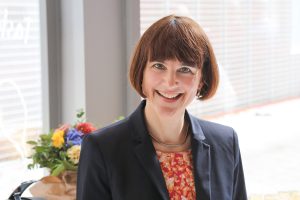 How did Science on Stage come about, and how has the network grown?
How did Science on Stage come about, and how has the network grown?
Science on Stage was born from a simple yet powerful idea: that teachers are the key to inspiring the next generation of scientists, engineers and innovators. It began in 2000 as a European initiative launched by the largest European research institutions, because they realised that they were running out of young STEM talent. When the European Commission stopped funding the network, we founded the non-governmental organisation Science on Stage Europe as a grassroots initiative from teachers for teachers.
Since then, it has grown into a vibrant network reaching over 100,000 STEM teachers across more than 30 countries. Our community is constantly expanding, driven by passionate educators who believe in learning through creativity, experimentation and collaboration.
Who makes up the Science on Stage community?
Our community includes primary and secondary school STEM teachers. In our network, we have hundreds, even thousands, of volunteers involved. What makes Science on Stage unique is our ‘from teachers for teachers’ approach, our international network, and the fact that we are a long-term initiative rather than a short-term project. Achieving an impact in education takes time.
We cooperate with industry partners, mainly Gesamtmetall (the Federation of German Employers’ Associations in the Metal and Electrical Engineering Industries) but also Vernier Science Education and Amazon Future Engineer, to ensure our projects’ and the network’s funding. We also have strong connections to other STEM initiatives, such as the EU STEM Coalition, and to universities, non-profit foundations and government ministries.
Science on Stage is powered by passionate teachers, but we cannot do everything we want to do on our own. To equip young people with the skills to tackle global challenges, we need strong partnerships. We invite companies, organisations and national stakeholders to invest in education – not just financially, but through collaboration and support for our member countries. We welcome partners who share our mission to inspire, connect and empower educators so they can ignite their students’ curiosity. Investing in teachers means investing in our future.
What are the challenges facing science teachers in Europe today?
Science teachers face many challenges: curriculum overload, lack of resources, multiple administrative tasks, and the need to keep up with rapid scientific and technological advances like AI, Education for Sustainable Development, etc. Perhaps most importantly, they often feel isolated. Science on Stage tackles these issues by building a support network where teachers can exchange teaching strategies, find high-quality materials and boost their confidence. We help teachers in their professional development and growth, motivate them, and value their work by offering opportunities to learn from each other – because committed teachers inspire committed students.
What does a Science on Stage Festival involve?
A Science on Stage Festival is like a science fair but for teachers. It’s the largest STEM education event in Europe, bringing together 500 teachers who showcase their best teaching ideas, attend workshops and collaborate across borders. The atmosphere is electric!
A Science on Stage Festival includes:
- A fair: Hundreds of primary and secondary teachers present their creative projects at stands where they share experiments, classroom activities and interactive tools.
- Workshops: Teachers lead practical, hands-on sessions designed for colleagues to explore, adapt and take back to their classrooms.
- Highlight sessions: Selected projects and small experiments are highlighted on stage.
- Partner forum: Companies and partners showcase their education initiatives and career paths.
- Networking: Cultural activities, evening receptions and excursions for networking and informal exchanges of ideas.
The Science on Stage Festival 2026 will take place in Klaipėda, Lithuania, between the 28th and 31st of May.
Seven guiding themes will shape the festival’s programme:
- STEM for the Youngest (under 10s)
- STEM Education for Sustainable Development
- AI in STEM Education
- Career Orientation in STEM Education
- Equity and Inclusion in STEM Education
- Self-Directed Learning in STEM Education
- Low-Cost Experiments in STEM Education
Special-themed tracks:
- Joint Projects — collaborations between teachers from two or more countries
- STEM for Teachers in Training — initiatives led by future educators
The local organisers of Science on Stage Festival 2026 are Science on Stage Lithuania, the Lithuanian Agency for Non-Formal Education, the Klaipėda STEAM Center, and Klaipėda University supported by the Ministry of Education.
The Science on Stage Festival isn’t just an event – it’s a launchpad. The projects that originate here are implemented in national teacher trainings, classrooms and communities across Europe, amplifying their impact long after the closing ceremony.
How does Science on Stage facilitate the sharing of good practice?
We believe that great ideas shouldn’t stay locked in a single classroom. Through our events, we bring together teachers from all school levels to share what works. Primary and secondary teachers learn from each other, breaking down silos and building a stronger community. Our projects often focus on interdisciplinary learning and topics related to students’ daily lives so that ideas can be applied across the full school spectrum. Teachers work together in long-term projects; they share good ideas via our webinars, and we support cross-border teacher exchanges.
What professional development opportunities do you offer?
We offer a wide range of training opportunities, from workshops and webinars to international teacher exchange programmes. In these exchanges, teachers from different countries visit each other’s schools to learn and co-develop new teaching materials. These projects are transformative; they not only improve classroom practice but also foster long-lasting professional friendships.
What teaching materials do you provide?
We provide free, high-quality STEM teaching resources developed by teachers for teachers. These include lesson plans, experiment guides, and interdisciplinary projects that bring science to life. All materials are available on our website as Open Educational Resources, in multiple languages and aligned with curriculum goals. Whether you’re looking for ideas on climate change, AI, coding or simple experiments related to everyday life, we’ve got something for you. Our resources are always practical and classroom-tested.
How can scientists get involved with Science on Stage?
Scientists and academics play a vital role in bridging cutting-edge research with everyday classroom teaching, and we welcome their involvement!
In many countries, Science on Stage’s national committees are hosted by universities. This opens the door for academic staff to actively support our mission. They can help spread the word about Science on Stage within their networks, connect with teachers, and offer valuable insights at national festivals, workshops and webinars.
What impact is Science on Stage having across Europe?
Science on Stage has inspired thousands of teachers to bring innovation into their classrooms. Over the years, Science on Stage has become a powerful catalyst, transforming how STEM is taught across Europe. Here are some numbers from our long-term evaluation:
- 96% of participating teachers have implemented ideas they discovered at Science on Stage events in their lessons.
- 85% have taken those ideas to teacher training events back home, becoming ‘multipliers’ who spread the innovative ideas shared at our festivals and events.
- The festival ignites international collaboration, with 92% of attendees making new international contacts.
- 89% of festival attendees rate the long-term effects of our festivals as ‘high’, and 83% plan to participate in the next festival.
These figures come from our long-term evaluation following the 2022 European Science on Stage Festival in Prague, Czech Republic. The survey covered the period before the event, during the festival and 14 months afterward, showing lasting transformation, not just fleeting inspiration.
As one teacher who has been involved with us over several years expressed: “Science on Stage has changed the way I teach and also my life. I feel motivated and more passionate about my profession.” It’s also very nice to receive positive feedback from the students of these teachers, such as: “I truly hope you continue organising such amazing competitions, with interesting topics that engage students! For me, Science on Stage was a crucial supporter of my journey as a student, and I wish you to continue supporting students the way you always supported me!”
What’s next for Science on Stage?
As ever, we have a lot going on! In preparation for the Science on Stage Festival 2026 in Lithuania, each country is actively hosting national festivals, competitions or selections throughout 2025 to choose teachers to represent it.
Our member countries are running a range of projects. For example, STEM Jobs for the Future is in full swing, with two in-person gatherings planned, including a meeting in Berlin in November 2025 and another in June 2026. ‘Quantum Computing in STEM’ and ‘Money and STEM’ projects are also on the horizon.
We will continue upscaling and disseminating good projects. And of course, we want to expand our teacher network. Science on Stage is open to all STEM teachers across Europe, so please join us!
Connect with Science on Stage
Website: science-on-stage.eu
![]() facebook.com/scienceonstageeurope
facebook.com/scienceonstageeurope
![]() linkedin.com/inscience-on-stage-europe-e.v.
linkedin.com/inscience-on-stage-europe-e.v.
Do you have a question for Stefanie?
1 Comment
Submit a Comment
Learn about STEM teaching resources provided by Scientix®:
www.futurumcareers.com/attention-teachers-scientix-a-platform-packed-with-science-focused-services

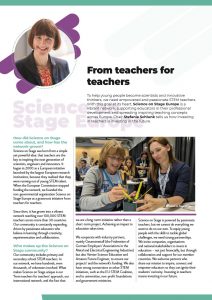
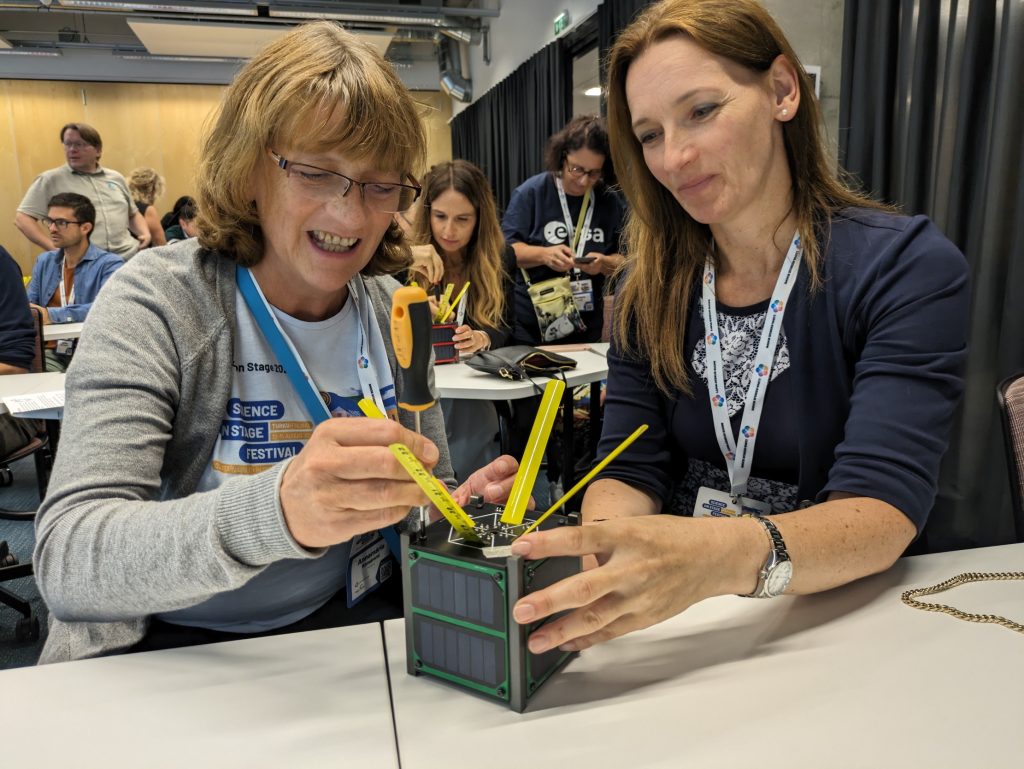
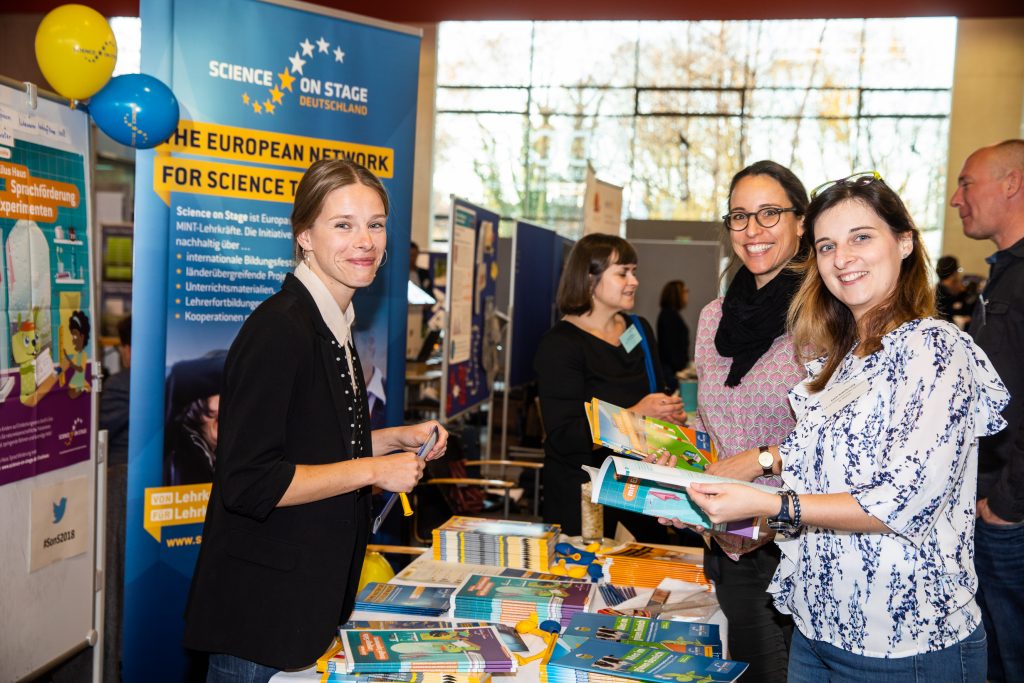
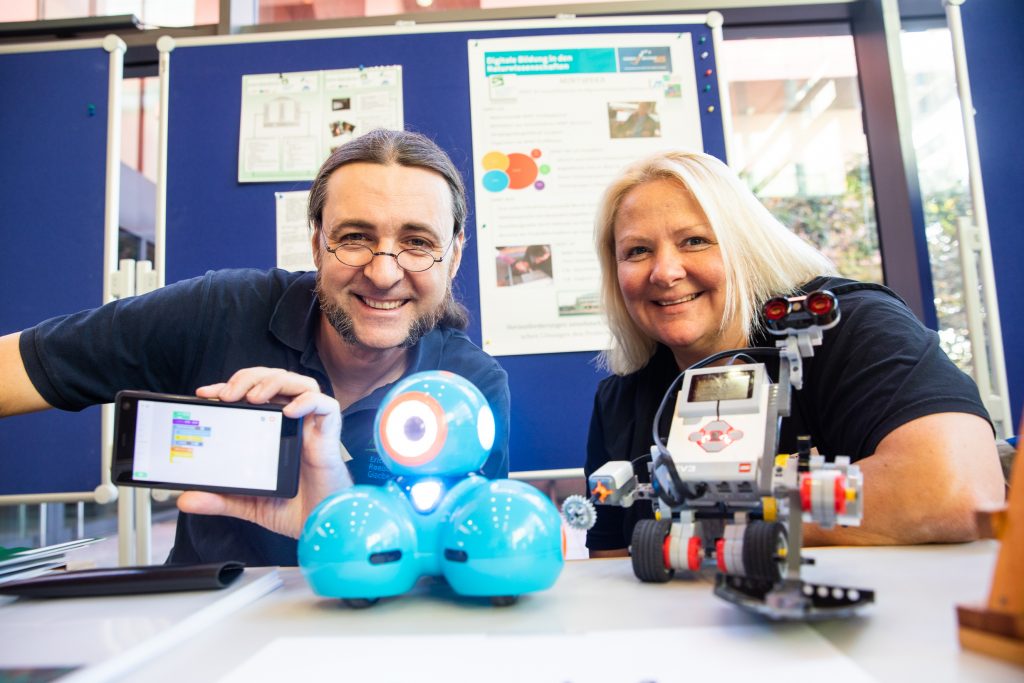
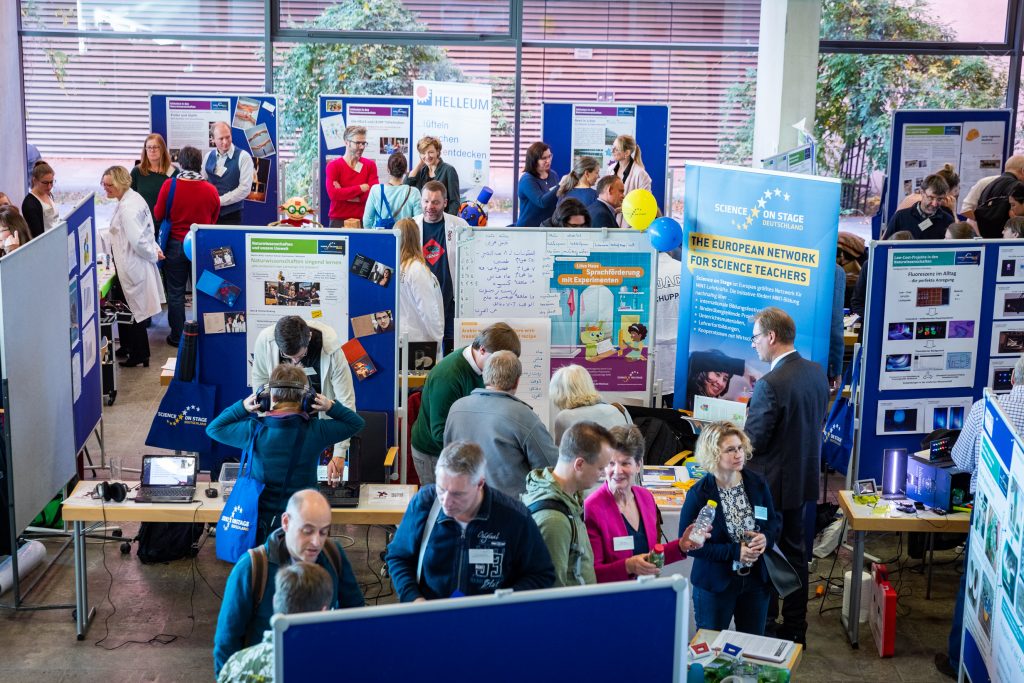
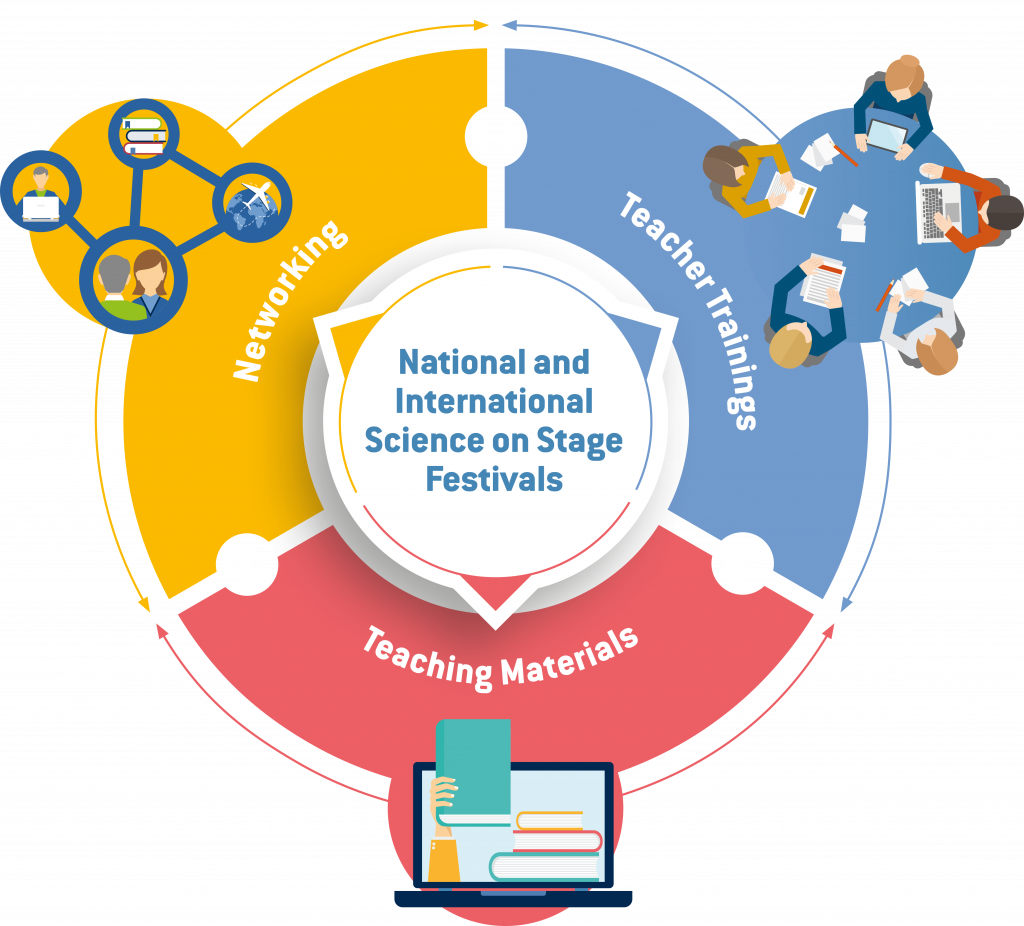
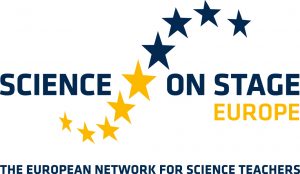


Hi Stefanie! I’m Astrid de Herrera, Global Learning Specialist and MLB Program Manager at Level Up Village (LUV)
I’d love to connect and explore how we can create something meaningful together. ⚾
🔥 The Players Exchange — a free, STEAM-based global program by Level Up Village and Major League Baseball (MLB) — connects schools to explore teamwork, leadership, and communication through exciting, student-led challenges.
🧠 Students watch MLB player videos, design and complete teamwork challenges, and share reflections with partner schools across continents.
📚 Teachers receive ready-to-use materials for an easy, engaging 4–6-week experience.
Please let me know if you can think of teachers who’d like to run the course in their school. Thank you😊
Warm regards,
Astrid